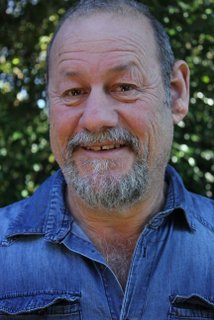Jonathan Holman – Counsellor & Psychotherapist
Brief Bio
Jonathan is committed to providing the opportunity for people to explore life’s challenges, possibilities and options in a safe, non-judgemental environment. Together
with clients he will explore creative responses to feelings of isolation, grief and depression, while being aware that we are all unique and that the way forward w
ill be different for each of us. Jonathan is skilled in a variety of therapeutic modalities and has a non-judgemental and collaborative approach.
His clients are from a diverse range of backgrounds and come with a broad range of concerns. He is particularly interested in helping people with regard to work and migration issues, often in combination with underlying stress, anxiety, grieving or depression.
Broadly the main issues that Jonathan works with are:
- Depression and anxiety
- Joblessness and work related issues
- Relationship issues or breakdown
- Migration issues and feelings of isolation
- The Search for more meaning in one’s life.
Qualifications
- Master of Counselling & Applied Psychotherapy
- Master of Arts in Sociology
- Diploma of Management
- Bachelor of Social Sciences majoring in Psychology and Sociology
Memberships
- Australian Counselling Association (ACA)
Jonathan’s Story
After completing school, I did an apprenticeship but later decided I was more interested in people and became a journalist on a daily newspaper. From there I went on to university studying psychology and sociology. After completion I went on to work in the not-for profit sector and later in the public service and in universities, primarily doing research and evaluation in vocational education. Along the way I completed a Master’s degree in Sociology. Later I went into business but after some time reverted to my passion for helping people and studied for a Master’s degree in Counselling and Psychotherapy. I have been in private practice since the beginning of 2015.
I was born and grew up in South Africa. My interest in people from a very young age, led to an interest in politics and in turn, activism in 1980’s South Africa. This was a very tumultuous time and eventually I left South Africa in the late 1980’s.
In Australia I initially struggled with feelings of my own sense of purpose and additionally struggled finding relevant work. Gradually through much personal work, therapy and some good luck, my position improved to the extent that I feel that I can once again help others.
I believe my life experiences have enabled the development of insight into the struggle, both personal and social that many people go through. This has, I believe, made me a better therapist. My life experience is an important reason why my particular areas of interest are work and migration issues. For the past year I have been working part time assisting asylum seekers and refugees to find work and to integrate into Australian society.
I regard the issue of ‘Manhood’ as critical. Historically men have been initiated into manhood by male mentors in the form of tribal, community or even family elders. Today this has broken down, resulting in confusion for many men about what is meant by ‘manhood’. A clear sense of manhood, is I believe, critical to healthy relationships between men and women; men and other men; and obviously men as parents. I believe that my personal experiences are relevant here. Over many years, as parent partner, friend and colleague, I have learned from my many mistakes and now feel that in a non-judgmental and collaborative way, I have something to offer both men and women in this regard.
I believe that therapy is the best way to find out about oneself, that we are all unique and that each person’s life pathway is intensely personal and different from anybody else’s. It is for this reason that I work with a wide variety of therapeutic techniques and modalities chosen according to appropriateness at a given time. However I do tend to work broadly from within Narrative Therapy, which believes that people interpret events in their lives in a number of ways and that they create stories of their lives (narratives) that either inspire or oppress them. Narrative therapists collaborate with their clients to identify the client’s hopes, dreams and assets and to use these to “re-author” the client’s story into an inspiring form that helps them live their lives in ways they prefer.
Historically I have found this model to be very beneficial, because I believe that clients, in collaboration with their therapist, can, in telling their own life story, gain understanding of their own lives and more clearly see previously elusive solutions. Rather than the therapist setting the agenda and pace, the client is in control, with the therapist asking for clarification or reframing or highlighting certain issues. In other words, when a solution is found, it will be the client’s rather than the therapist’s.
I look forward to working with you and hearing your story.
Jonathan Holman

 Follow
Follow